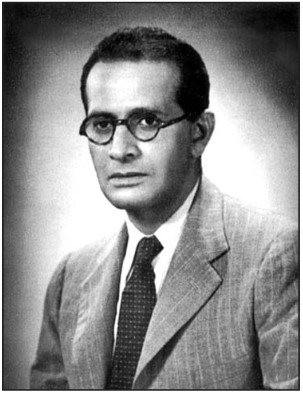Founder
Dr. Rustom B. Billimoria
May 1882,
Rustomji was the youngest of three sons and a daughter of Bomanji Jamshedji Bllimoria. His mother died when he was just two but the children were lovingly reared by their father. Born in Bombay on 13 th Bomanji Billimoria was a secretary in the Bombay Dyeing and Manufacturing Company and a man of modest means. A devout Zoroastrian, he took care to instill into his children the moral precepts of their faith and the importance of prayer and respect for elders. Rustomji and his brothers never left the house without touching their father’s feet.
Rustomji had a distinguished medical career. He passed out of the Grant Medical College with an M.D. degree. A specialist in chest diseases and a pioneer in the treatment of TB, he was one of Bombay’s leading physicians and worked as an honorary physician at the G.T. Hospital and the Parsi General Hospital. He was also an honorary consulting physician at Dr. Bahadurji’s Sanatorium at Deolali.
Apart from the relief to poor patients at Bel-Air, scores of patients were treated free in Bombay. Those who approached him with a tale of woe were assured of assistance.
It was in such a social scenario, at a time when patients were ostracized and condemned to an early death that young Dr. Rustom Billimoria dreamt of setting up a sanatorium cum hospital for the TB afflicted where they could be rehabilitated. His paper to the All-India Tuberculosis Association on “The role of the family physician in the anti-tuberculosis campaign” published in the 23 rd annual report of the Bel-Air Sanatorium and Hospital depicts the battle that medical professionals faced against prevailing social mores, ignorance and apathy.
Even as Dr. Billimoria searched for a larger, more propitious place for his Sanatorium, destiny played her second card through well wisher Mr. Maneksha Ponchkhanawala, a solicitor, who conveyed Dr. Billimoria’s need to Sir Dorab Tata and Dalkeith fell into his lap. Dalkeith Estate which houses the Bel-Air Sanatorium and Hospital, covers an expanse of about 44 acres of verdant land. The Sanatorium and Hospital situated at the extreme end of town, is bounded on the North-East by a tableland, on the North-West by the town and the remaining sides by valleys and mountains. Thus, it is well protected from the elements – chilly winds, storms and dust – by these natural barriers. This serenely beautiful estate continues to represent the munificent and generous donation given by Sir Dorabji Tata in 1914 for the Bel-Air Sanatorium project to enable Dr. Billimoria to continue his crusade against the scourge of tuberculosis in India.
Always sitting in the back seat of his car with a handkerchief clasped over his mouth and nostrils, he exhorted his patients and family, whether they were walking or sitting in a vehicle, to take the same precautions against the entry of dust into their lungs. To most people, he came across as a fiery but kindly eccentric.

Dr. Bomi R. Billimoria

Rustomji’s son Bomi who had accompanied his mother to Switzerland for prolonged treatment, schooled there and later proceeded to the UK for medical education. Even after acquiring his FRCS degree in 1940 he continued to live and work in England, returning to India only in 1947 accompanied by his English wife Mavis, a professional midwife and nurse, and their one-year old daughter Sarah. Bomi and Mavis had two more sons in India — Jal and Rustom.
It is rightly said that Dr. Bomi Billimoria “brought surgery” to the Sanatorium because “thoracoplasty,” an operation that collapses the affected part of the lung and expedites healing, was performed for the first time by him. Former patient Eruch Ghadially recalls that the accomplished surgeon dedicated a few days a month to operate at Bel-Air, gradually increasing the number of surgeries to seven a day.
